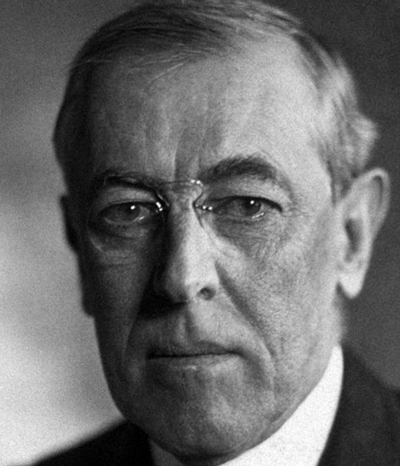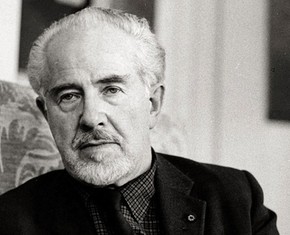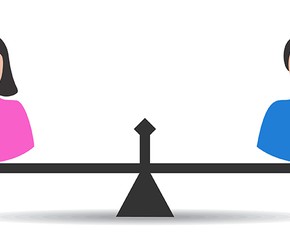The views expressed in our content reflect individual perspectives and do not represent the authoritative views of the Baha'i Faith.
Ideally, how many hours do you think people should have to work each day to make a decent living?
If you answered “eight hours,” you’re completely in step with the times—a few centuries ago. The so-called “short-time” movement for an eight-hour workday started in the early 1800s in England. During that period, as the Industrial Revolution made factory work into a grinding life sentence at hard labor, adults and even children typically worked an average of between 70-100 hours every week. The British socialist Robert Owen came up with the eight-hour idea in 1817, and used the slogan “Eight hours labour, Eight hours recreation, Eight hours rest.”

President Woodrow Wilson
It took a hundred years before anyone really implemented that eight-hour day, though. Guess where? Well, Karl Marx lobbied for it in Das Kapital, and the first country to officially adopt an eight-hour workday was Soviet Russia, immediately after its revolution in 1917. During that same year, President Woodrow Wilson implemented an eight hour workday for government employees. Twenty-one years later, in 1938, the U.S. Congress enacted the 40-hour week into law. Since then, eight hours of work a day with a two-day weekend has become a global standard—but a hundred years later, we’re beginning to see a change in that assumption.
The world is now witnessing—as a result of automation, technological change and ongoing research into the patterns of human productivity—a growing push to reduce the length of the workday. Many organizations, corporations and even countries have started to implement shorter workdays and work weeks. Policymakers and employment experts say that those changes result in happier, healthier and more productive employees, fewer sick days, and a general upswing in the number of people employed. Because of the productivity gains, wages can often stay at the same levels—or even higher.
A move to shorter working hours would also help the unemployed, jobless young people, those working involuntary overtime or those working part-time because they can’t find full-time jobs, the analysts say.
After all, we work hard. The average number of hours per week a “full-time” employee actually works in the United States? 47. Add to that the commuting time, the preparation time and the time spent on electronic devices connected to the workplace, and the total goes right back up to early-1800s levels.
So give it some thought: consider your average workday, and try to calculate how much of it is actually productive. In an eight-hour span of time, how much of that time is actually spent working, and how much is spent in unnecessary meetings or doing unnecessary tasks? If you tried, could you cut your eight hour workday in half, and still accomplish the same amount of actual output? If your boss said you could work half the time for the same salary if you kept up your full-time output and productivity, could you do it? When asked that question on workplace surveys, more than 90% of workers answered yes.
When companies have tried it, they’ve actually seen increases in productivity and profitability, as well as worker retention, talent acquisition and employee satisfaction.
More and more, businesses and nations are recognizing the fact that humans aren’t machines, and that human productivity inevitably declines the longer people have to work. We know that a healthy work-life balance means better and more sustainable work. We also know that happier, healthier, more motivated workers generate much higher productivity. With more time to pursue your interests, pay attention to your family and your relationships, and stay physically active, your emotional and physical energy and well-being increase—and that pays dividends in every part of life, including work.
The Baha’i teachings see this trend as a very positive one. In 1907, Abdu’l-Baha foresaw a future time when the total number of hours worked would decline, and the number of leisure hours would begin to increase:
That all mankind might have opportunity, it was necessary to shorten the hours of labour so that the work of the world could be completed without such demand of strain and effort, and all human beings would have leisure to think and develop individual capacity ….
Soon there will be a six hour day, a five hour, a three hour day, even less than that, and the worker must be paid more for this management of machines, than he ever received for the exercise of his two hands alone. – Abdu’l-Baha, as reported by Mary Hanford Ford in Star of the West, Volume 10, pp. 106-107.
Perhaps we’re beginning to reach that point, where automation and altruism combine to recognize the fact that happy human beings make better workers.
You May Also Like
Comments

















Thanks,
Robert Grunloh
Tucson AZ
How does the concept of work is worship balance with the desire to work less.
Paul